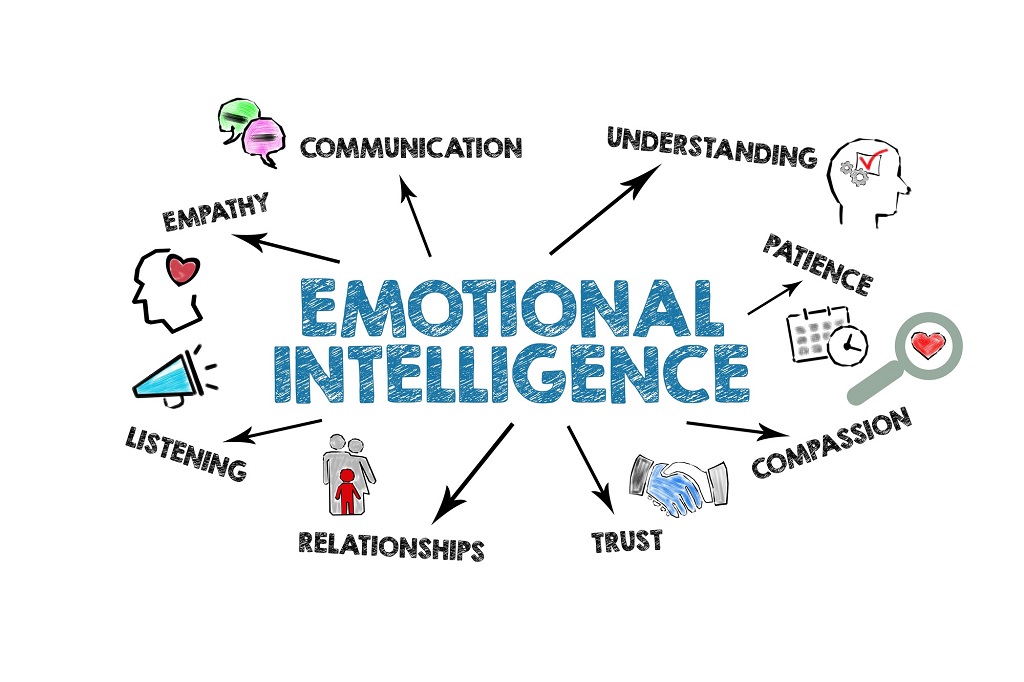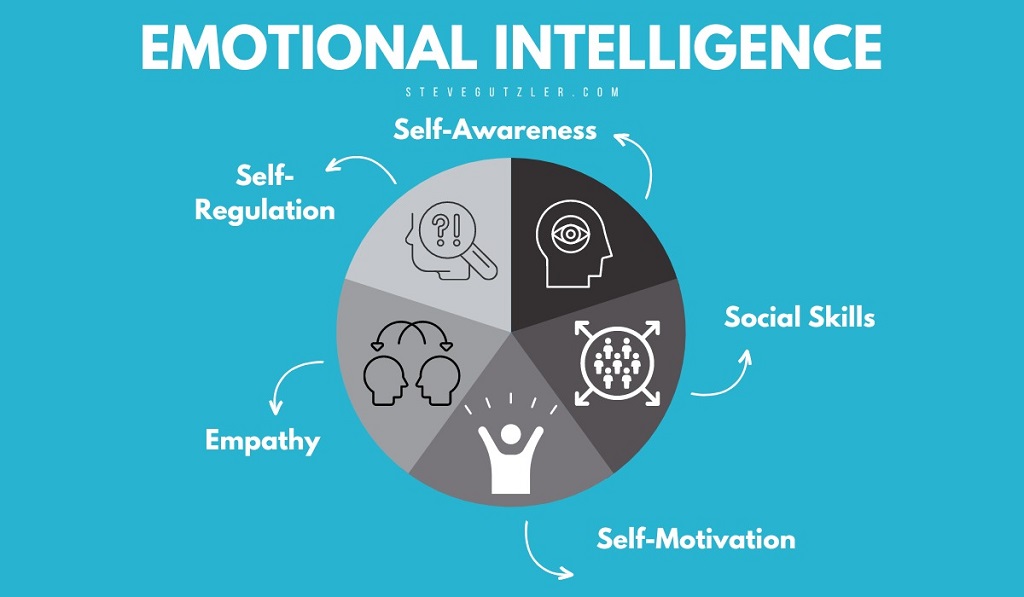
Emotional and intellectual health are two pillars of well-being that shape how we think, feel, and navigate life. Emotional health refers to our ability to manage feelings, cope with stress, and maintain positive relationships. Intellectual health, on the other hand, involves cognitive abilities like problem-solving, critical thinking, and creativity. But how are emotional and intellectual health related? These two aspects of wellness are deeply intertwined, each influencing the other in profound ways. For example, a balanced emotional state can sharpen focus and decision-making, while a stimulated mind can foster resilience against stress. This guide explores their connection, answering key questions and offering practical insights. By understanding this relationship, you can nurture both your heart and mind for a healthier, more fulfilling life. Let’s dive into the science, benefits, and strategies to optimize these vital components of well-being, with tips inspired by resources like Secret Home Remedies.
Thank you for reading this post, don't forget to subscribe!Main Body: Key Questions About Emotional and Intellectual Health
What Is the Definition of Emotional and Intellectual Health?
Snippet Answer: Emotional health is the ability to manage emotions, cope with stress, and maintain healthy relationships, while intellectual health involves cognitive functions like critical thinking, learning, and creativity.
Emotional health is about understanding and regulating your feelings. It includes resilience, self-awareness, and the capacity to form meaningful connections. For instance, someone with strong emotional health can handle disappointment without spiraling into negativity. Intellectual health, meanwhile, focuses on mental agility. It encompasses problem-solving, memory, and the ability to learn new skills. A person with robust intellectual health might enjoy puzzles or thrive in environments that challenge their thinking. Both are essential for overall well-being, and their interplay is critical. For example, stress (an emotional factor) can cloud judgment (an intellectual function), while learning a new skill (intellectual) can boost confidence (emotional). Understanding how emotional and intellectual health are related can guide you toward holistic wellness, as outlined in resources like Secret Home Remedies.
How Do Emotional and Intellectual Health Influence Each Other?
Snippet Answer: Emotional health affects cognitive functions like focus and decision-making, while intellectual health supports emotional resilience through problem-solving and self-esteem.
The relationship between emotional and intellectual health is dynamic. Emotions can either enhance or hinder cognitive performance. For instance, anxiety can impair memory and concentration, as shown in a study from the National Institutes of Health, which links chronic stress to reduced cognitive function. Conversely, positive emotions like joy or curiosity can enhance creativity and problem-solving. Intellectual health also supports emotional well-being. Learning a new skill, such as playing an instrument, can boost self-esteem and reduce feelings of depression. This two-way street means that nurturing one aspect often strengthens the other. For example, practicing mindfulness (emotional) can improve focus (intellectual), while engaging in brain games (intellectual) can reduce stress (emotional). Therefore, a balanced approach to both is key to thriving.
What Are the Signs of Poor Emotional and Intellectual Health?
Snippet Answer: Poor emotional health may show as mood swings, anxiety, or isolation, while poor intellectual health can manifest as difficulty focusing, memory lapses, or lack of curiosity.
Recognizing the signs of imbalance is crucial for addressing issues early. Emotional health struggles might include:
- Persistent sadness or irritability, making daily tasks feel overwhelming.
- Difficulty managing stress, leading to outbursts or withdrawal.
- Lack of motivation or disconnection from relationships.
Intellectual health issues, meanwhile, might look like:
- Trouble concentrating on tasks or retaining information.
- Reduced interest in learning or creative pursuits.
- Decision-making paralysis or mental fatigue.
These signs often overlap. For instance, chronic stress (emotional) can lead to brain fog (intellectual), creating a vicious cycle. A Psychology Today article notes that prolonged emotional distress can shrink the hippocampus, a brain region tied to memory and learning. Addressing these signs requires a dual approach, targeting both emotional regulation and cognitive stimulation.
How Can You Improve Emotional and Intellectual Health Together?
Snippet Answer: Improve emotional and intellectual health by practicing mindfulness, engaging in lifelong learning, maintaining social connections, and prioritizing physical health.
Enhancing both aspects of well-being requires intentional habits. Here are practical strategies:
- Mindfulness Practices: Meditation or journaling can stabilize emotions and sharpen focus. Studies show mindfulness improves working memory and reduces anxiety.
- Lifelong Learning: Reading, taking courses, or solving puzzles keeps the brain active and boosts confidence, supporting emotional resilience.
- Social Connections: Strong relationships provide emotional support and intellectual stimulation through meaningful conversations.
- Physical Health: Exercise, sleep, and nutrition fuel both emotional stability and cognitive clarity. For example, aerobic exercise enhances memory and reduces stress.
Resources like Secret Home Remedies emphasize natural approaches, such as herbal teas or relaxation techniques, to support this balance. Additionally, setting realistic goals—like learning a new hobby while practicing gratitude—can create a positive feedback loop. Consistency is key. Small, daily actions compound over time, strengthening both heart and mind.
What Role Does Stress Play in Emotional and Intellectual Health?

Snippet Answer: Stress negatively impacts emotional health by causing anxiety and irritability, and it impairs intellectual health by reducing focus, memory, and decision-making.
Stress is a common thread that affects both emotional and intellectual health. When you’re stressed, the body releases cortisol, which can disrupt emotional balance and cognitive function. For example, chronic stress can lead to feelings of overwhelm (emotional) and difficulty concentrating (intellectual). The brain’s prefrontal cortex, responsible for decision-making, is particularly sensitive to stress, as noted in NIH research. However, managing stress can break this cycle. Techniques like deep breathing, exercise, or even creative outlets like painting can lower cortisol levels. These activities not only soothe emotions but also enhance cognitive clarity. For instance, a brisk walk can clear mental fog while boosting mood. By addressing stress, you create space for both emotional stability and intellectual growth, reinforcing their interconnectedness.
Can Intellectual Activities Boost Emotional Well-Being?
Snippet Answer: Yes, intellectual activities like learning new skills, reading, or problem-solving can boost emotional well-being by increasing confidence and reducing stress.
Engaging your mind can have a ripple effect on your emotions. Learning a new language, for example, challenges the brain and fosters a sense of accomplishment, which lifts mood. Creative pursuits like writing or playing music also serve as emotional outlets while stimulating cognition. A study from the NIH found that cognitive engagement, such as reading or playing chess, correlates with lower rates of depression. These activities provide a sense of purpose, which is vital for emotional health. Moreover, intellectual challenges can distract from negative emotions, offering a healthy escape. For instance, solving a complex puzzle can shift focus from anxiety to problem-solving, creating a sense of control. By integrating intellectual activities into your routine, you nurture both mental sharpness and emotional resilience.
How Does Emotional Health Impact Cognitive Performance?
Snippet Answer: Positive emotional health enhances cognitive performance by improving focus, memory, and decision-making, while negative emotions can impair these functions.
Your emotional state directly affects how your brain performs. Positive emotions, like happiness or curiosity, release dopamine, which enhances memory and attention. For example, when you’re in a good mood, you’re more likely to solve problems creatively. Conversely, negative emotions like anxiety or sadness can hijack cognitive resources. Chronic stress, for instance, can impair the brain’s ability to form new memories, as shown in neuroscience research. This is why someone feeling overwhelmed might struggle to focus on work or make decisions. To counter this, practices like gratitude journaling or therapy can stabilize emotions, freeing up mental energy for cognitive tasks. By prioritizing emotional health, you create a foundation for sharper thinking and better intellectual outcomes.
Conclusion: Building a Balanced Life with Emotional and Intellectual Health
Emotional and intellectual health are not separate entities—they’re deeply connected, each shaping the other in meaningful ways. By understanding how emotional and intellectual health are related, you can take proactive steps to nurture both. Simple habits like mindfulness, lifelong learning, and stress management can create a virtuous cycle, enhancing your ability to think clearly and feel balanced. Resources like Secret Home Remedies offer practical tips for integrating these practices into daily life. Start small: try a new hobby, practice gratitude, or take a walk to clear your mind. These actions don’t just improve one aspect of well-being—they uplift both your heart and mind. Ready to take the next step? Explore natural wellness strategies at Secret Home Remedies and begin your journey to a healthier, more balanced you.
Read More Also: How to Install Assetto Corsa Mods
FAQ Section: Common Questions About Emotional and Intellectual Health
What is the connection between emotional and intellectual health?
Answer: Emotional health influences cognitive functions like focus and memory, while intellectual health supports emotional resilience through confidence and problem-solving.
The two are interdependent. Positive emotions enhance cognitive performance, while mental stimulation boosts emotional well-being.
Can stress affect both emotional and intellectual health?
Answer: Yes, stress causes emotional issues like anxiety and impairs intellectual functions like concentration and decision-making.
Chronic stress releases cortisol, which disrupts both emotional balance and cognitive clarity, creating a cycle that needs active management.
How can I improve my emotional and intellectual health?
Answer: Practice mindfulness, engage in learning, maintain social connections, and prioritize physical health to support both.
Daily habits like meditation, reading, and exercise can strengthen emotional stability and cognitive sharpness.
Do intellectual activities help with emotional health?
Answer: Yes, activities like reading, puzzles, or learning new skills boost confidence and reduce stress, improving emotional health.
These activities provide a sense of purpose and distract from negative emotions, fostering resilience.
What are signs of poor emotional and intellectual health?
Answer: Emotional signs include mood swings or isolation; intellectual signs include difficulty focusing or lack of curiosity.
These signs often overlap, requiring a balanced approach to address both aspects effectively.
Can emotional health impact memory?
Answer: Yes, positive emotions improve memory by enhancing focus, while stress or sadness can impair memory formation.
Emotional states influence the brain’s ability to process and retain information.
How does physical health relate to emotional and intellectual health?
Answer: Physical health, through exercise, sleep, and nutrition, supports emotional stability and cognitive function.
A healthy body provides the energy and clarity needed for both emotional and intellectual well-being.
